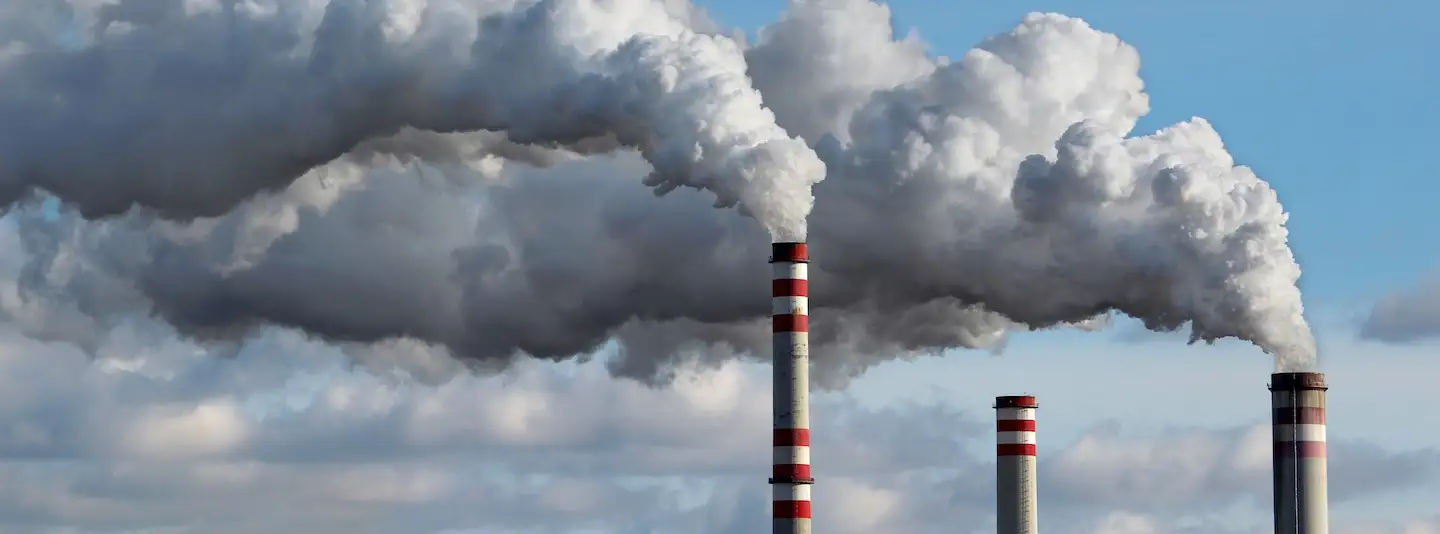B Corp Standards: Mitigating Risk, Driving Change

When the B Impact Assessment was created in 2006, one of the goals was to create a framework that enabled stakeholders to compare apples to apples, measuring a company’s positive social and environmental impact across different industries and geographic borders, considering companies of all sizes.
Over the years, significant improvements have been made to the B Impact Assessment, which is currently in its 6th iteration. In this latest version, some adjustments have been made to tailor questions to small and large companies, while strengthening questions around the governance and management of social and environmental impacts for multinationals and large companies. A summary of all the changes in Version 6 can be found here.
The B Corp Certification process assesses a company’s potentially negative impacts separately from its positive impacts. In aiming to shift away from an extractive economy to a regenerative one, beyond simply evaluating compliance, it’s important for the assessment to look at what companies are proactively doing differently to go above and beyond and create a positive impact for people and the planet. While most of the B Impact Assessment captures a company’s positive impact, a company’s negative impacts are identified through the Disclosure Questionnaire, background checks, and the public complaints process. A company may be required to transparently disclose practices on their public B Corp profile, implement management practices to mitigate the risk, or in some cases, be ineligible for certification.
B Lab also recognizes that for companies in certain industries or of a certain size, additional analysis may be required to assess a company’s performance and confirm that it is accurately mitigating any potential negative impact to stakeholders. In 2021, B Lab introduced additional baseline requirements for large companies (required for parent companies generating $5B+ in annual revenue).
Over the years B Lab’s independent Standards Advisory Council has also continually evolved B Lab’s risk standards to introduce additional minimum standards for companies in certain industries or who have certain practices and policies with potential for negative impact.
While some industries and practices may prohibit a company from certification, in some circumstances, we also recognize that it may be possible for companies to meaningfully manage potentially negative impacts or practices. In these circumstances, we must distinguish between good and bad actors by using rigorous standards of verified social and environmental performance, legal accountability, and public transparency.
For example, our risk standards may require structural change regarding risky or potentially harmful behaviors often prevalent in large companies and controversial industries:
- Pharmaceutical companies are only eligible for B Corp Certification if they have not, in the past five years, engaged in lobbying or policy that endangers consumer safety; influenced unjustified delay in the introduction of an authorized generic product to the market; or engaged in price gouging of their products. They must also demonstrate outlined best practices.
- Companies involved in the production and sale of fossil fuels, including those that generate or sell energy derived from fossil fuels, would only be eligible for B Corp Certification if they are not engaged in specific prohibited practices regarding extraction, lobbying, and financial incentives; have successfully transitioned their energy portfolio to be at least 50% carbon-free; and have committed to making progress towards transitioning to a fully carbon-free portfolio within specified timeframes.
- In the water utilities sector, companies involved in lobbying or policy advocacy for cheaper water prices for the company or weaker regulations, and companies with unresolved stakeholder concerns over their access to water sources or over their interactions with the public sector are ineligible for B Corp Certification.
There is a natural tension between the inclination to exclude companies in controversial industries and the need to transform culture, behavior, and impact of these industries. We constantly grapple with this at B Lab in order to maintain credibility, manage risk while also achieving the impact the B Corp movement seeks in the world.
There are now Certified B Corps in over 160 industries across the globe with varying levels of complexity within their structures. There are currently 20 different industry risk standards ranging from fossil fuel companies to pharmaceuticals – however, the absence of a B Lab position and standard on an industry or practice with potential negative impacts does not mean that B Lab does not consider the issue controversial.
With the speed of technological advancements and globalization, new industries and practices are rapidly emerging, and our standards need to evolve accordingly. As part of B Lab’s ongoing process to evolve B Corp standards since 2020, B Lab is considering and gathering stakeholder input on how to continue to improve how we evaluate and support companies in mitigating risk within the certification process.

Your questions about Risk Standards, explained
How are risk standards developed?
The development of new risk standards is a complex and time-intensive undertaking. The need to develop a new standard often arises when one or multiple companies in a new industry begin their journey towards B Corp certification, and based on the documentation provided by the company, the background checks and research done as a part of the verification process it is evident that more tailored and specific requirements are needed to assess the company’s risk.
Once the need for a new set of standards is determined, the standards are developed via a research and stakeholder engagement process (including a public consultation), presented to B Lab’s independent Standards Advisory Council for a decision, and ultimately ratified by the B Lab Board of Directors. Once initiated, from start to finish this process takes on average 15 months.
If an industry has been determined to require specific risk standards but those standards have not yet been developed, new companies in those industries will not be able to proceed with certification until the standard development process is complete.
Why are some industries selected for risk standards development over others?
Each year, B Lab schedules new risk standards development with the support of its Global Partners and Board of Directors by assessing factors including potential contribution to our Theory of Change, interest in certification from the industry, and network engagement. Given B Lab’s limited capacity, there is a need to prioritize which risk standards get developed.
Many industry’s potential negative practices are evaluated via the Disclosure Questionnaire, for example, biodiversity impacts, animal products or industries at high risk of human rights violations. An industry will only be flagged for eligibility review if these standards are not deemed sufficient to evaluate a company’s holistic performance.
When can an eligibility review be triggered in a company’s journey to certification?
When a company begins their certification process and there is already an existing risk standard for the company’s industry or practices, the company will be required to meet the standard before being able to complete certification. If their industry has been flagged for review and a standard has not yet been developed, the company will be notified they cannot proceed until the applicable risk standard development gets prioritized. The company can collaborate in the standard development and continue their certification journey once the standard is in place.
There are several stages within a company’s journey where an eligibility review may be triggered, including:
- During the initial Risk Screen and Evaluation process based on research and background checks
- While verifying a company’s B Impact Assessment and supporting documentation
- While reviewing the company’s Disclosure Questionnaire and supporting documentation
- If B Lab received an official public complaint that triggers an investigation
- At any stage, based on new information provided by another company in the same industry
While we understand that this process may create frustration for companies that have committed significant time and resources to the certification process, it’s critical for B Lab to have checks and balances in place along the way to be able to flag possible risks, especially when it is an industry where there is not yet a precedent.
What about existing B Corps operating in those industries?
If and when B Lab flags an industry or practice for review, it will not certify new companies in those industries – however, existing B Corps who operate within that industry will be able to retain their certification while the new standards are developed. There may be additional analysis required during a company’s recertification, but their certification will not be revoked because the standards for that industry have not yet been determined. Once the new standards are ratified and implemented, those B Corps will be subject to the new standards upon their certification. This is also clearly communicated when moratoriums and new standards development processes are announced, as is the case for companies with operations in Russia/Belarus and companies who offer financial services with over $1B in revenues.
What industries are currently under review?
The two risk standards that are being developed in 2023 are:
- Location-based platforms: Companies that operate digital platforms and provide services in which workers have to be physically present in order to perform the job (e.g., ridesharing, food delivery).
- Companies operating in countries engaged in acts of war and/or conflict zones: Companies that operate in countries engaged in acts of war and/or conflict zones. This may include, but is not limited to, Russia and Belarus (as per B Lab’s moratorium) and governments at risk of human rights violations (as per B Lab’s statement).
For an up-to-date list of all industries which have existing risk standards and industries that have currently been flagged for eligibility review, visit B Lab Global’s website.
